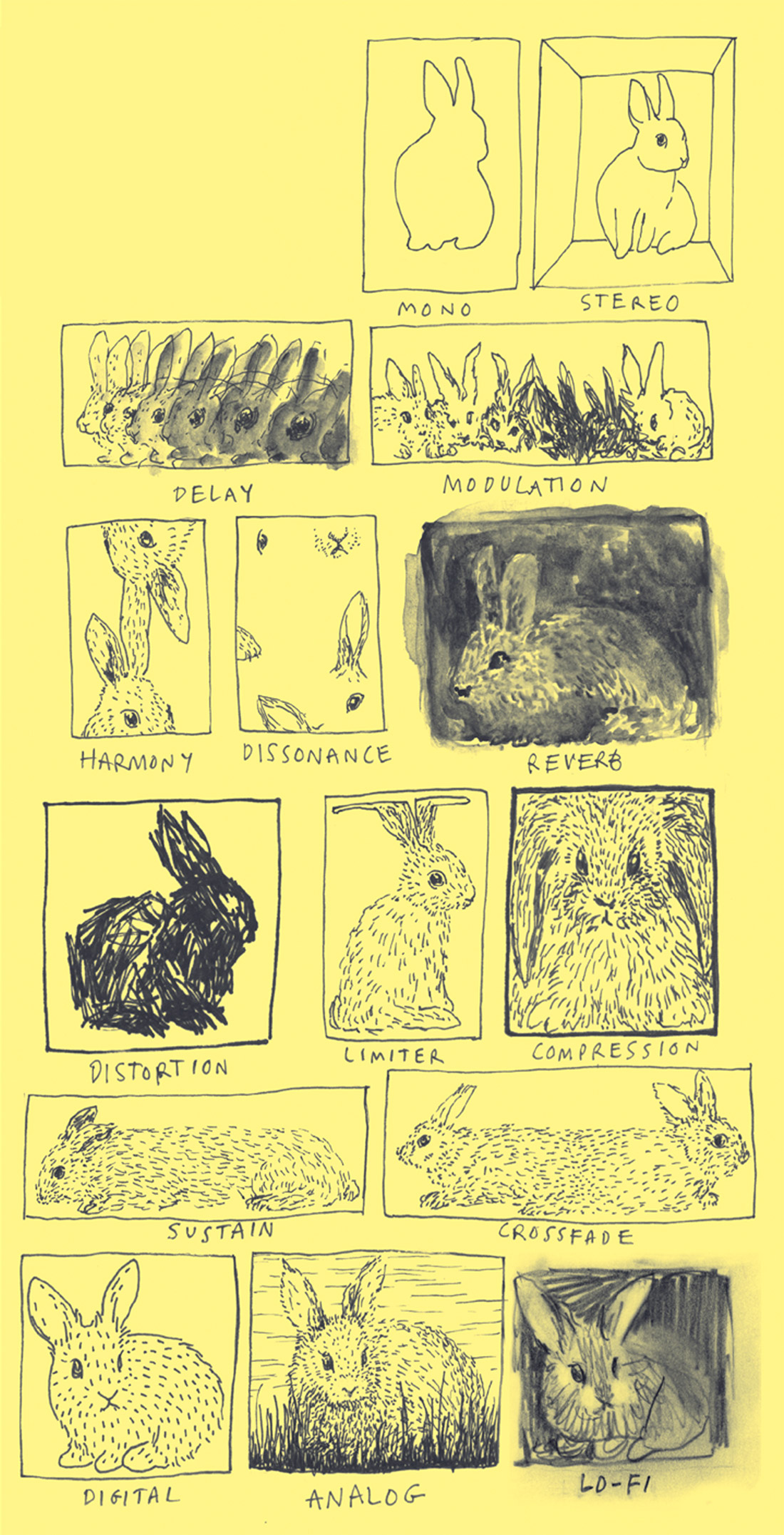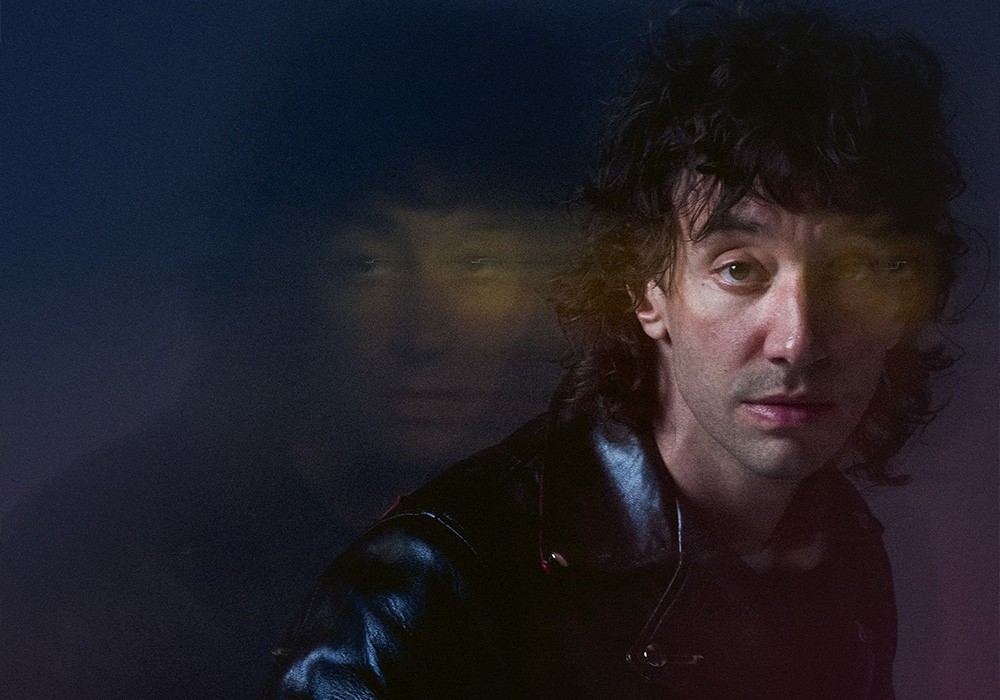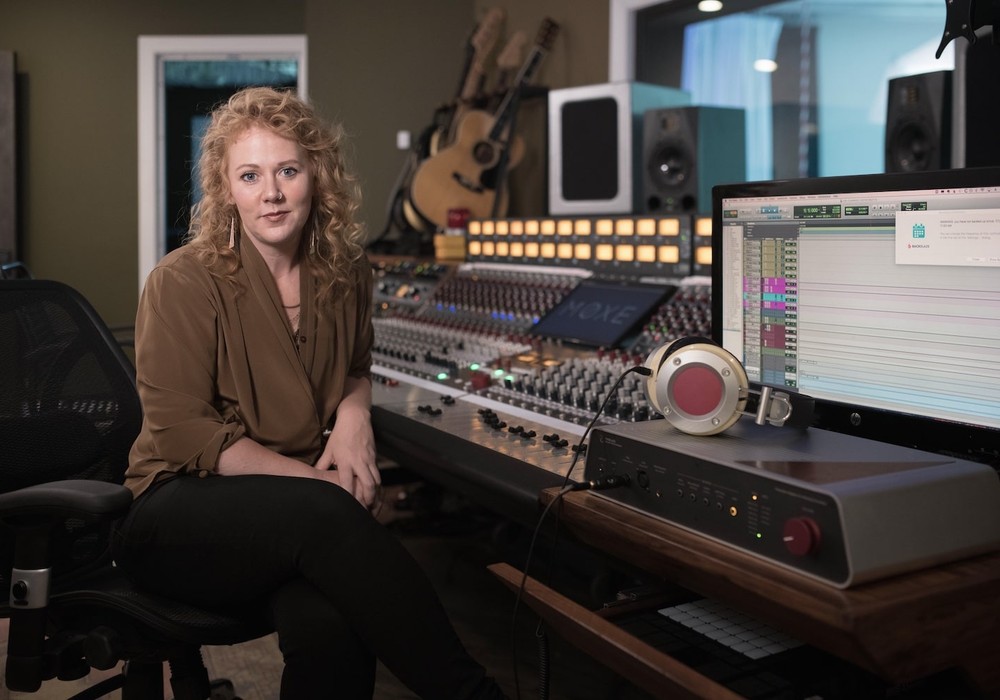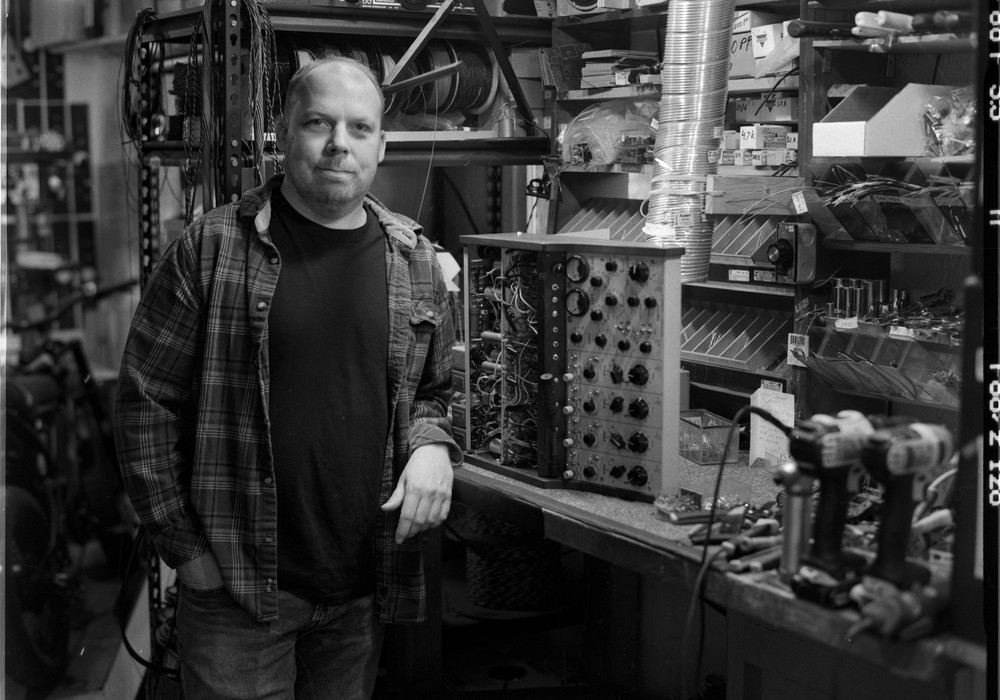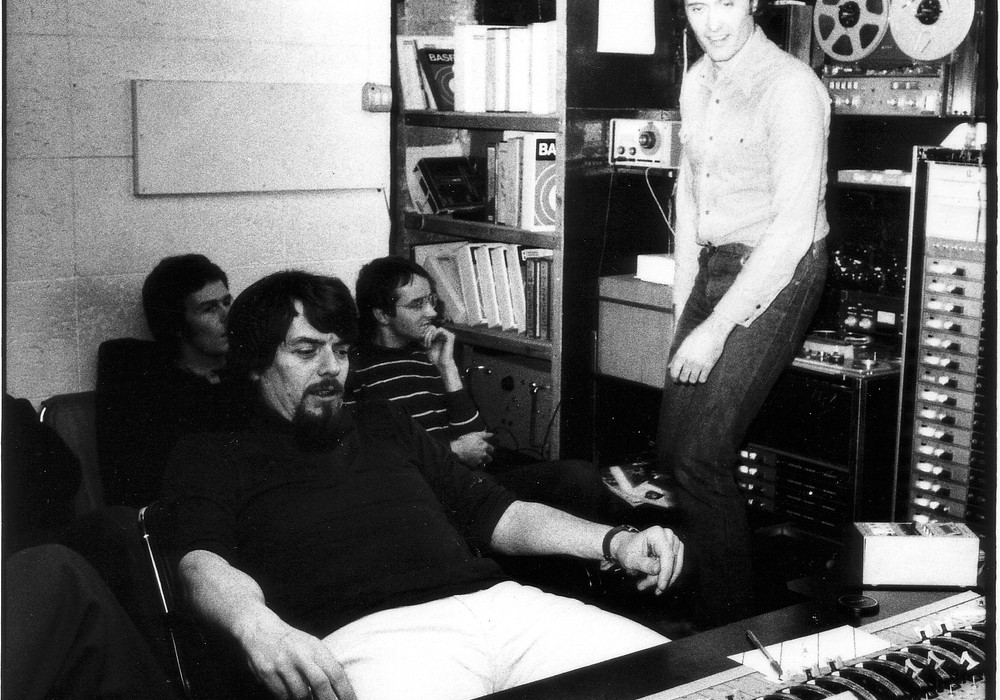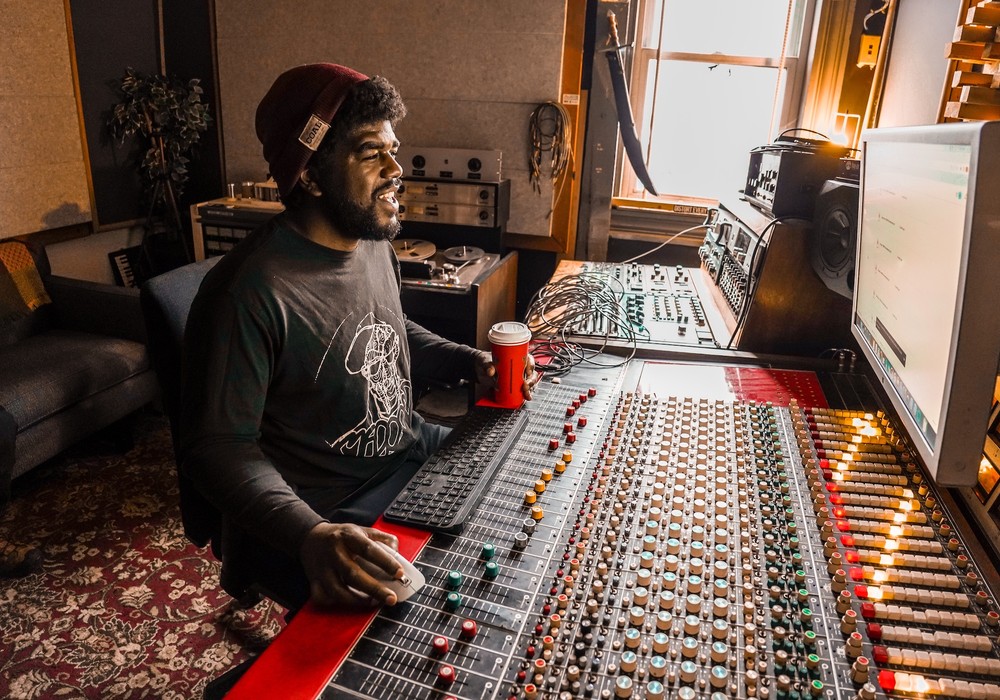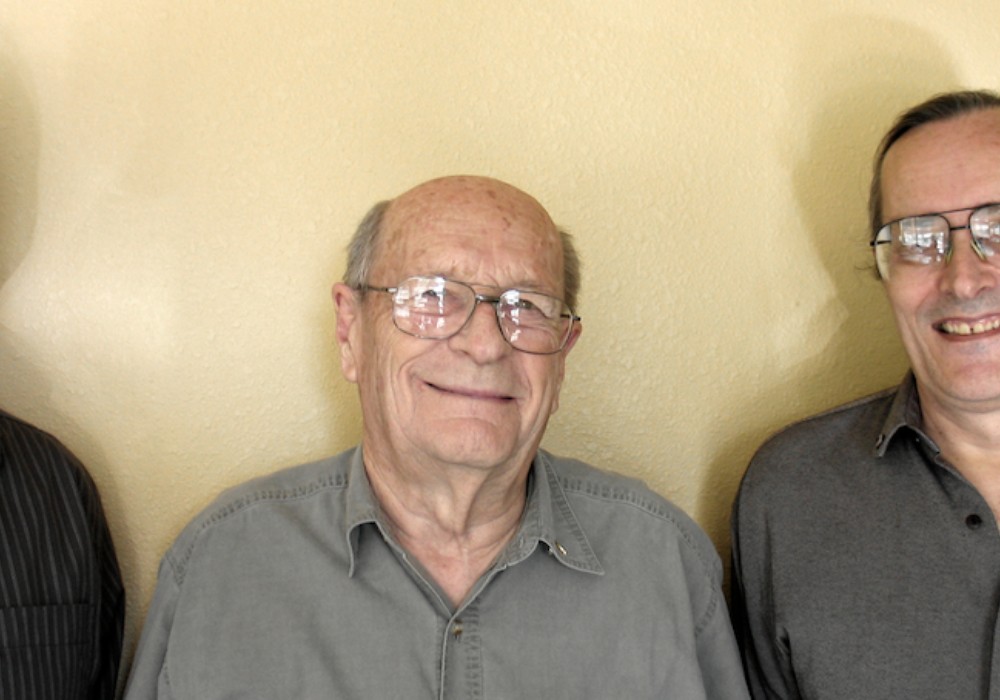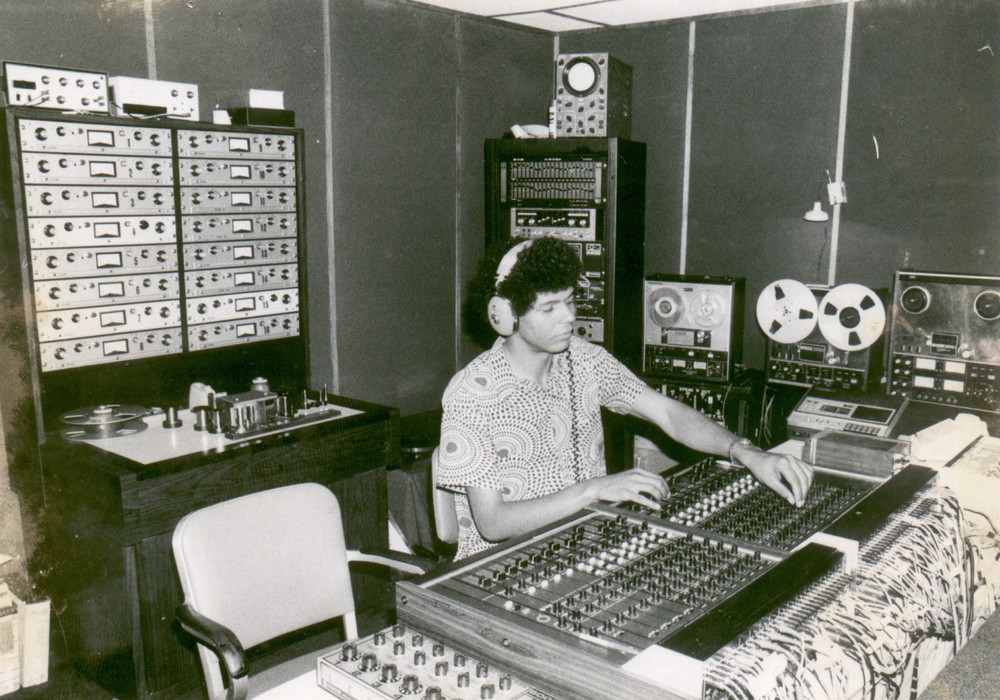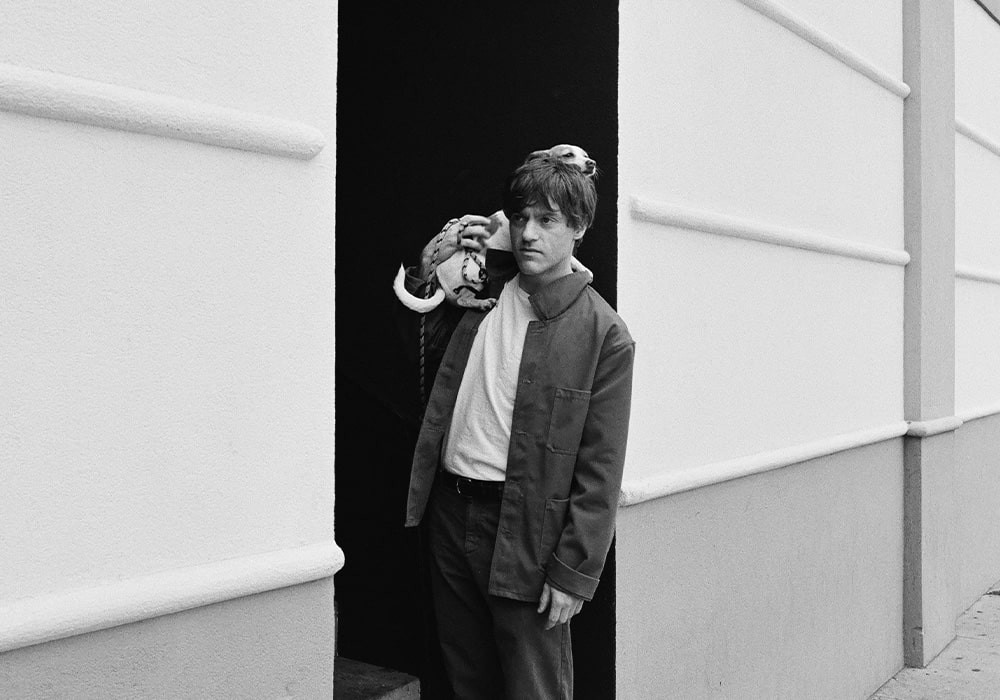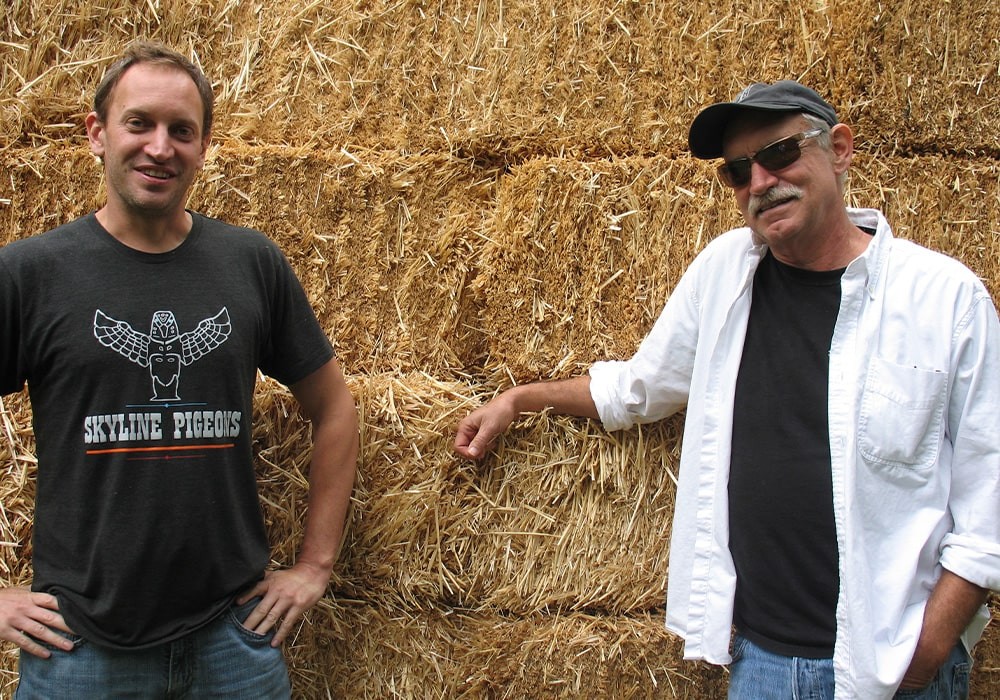When I was in high school my friend picked up a copy of Wire's 1979 album 154 based on a review in Rolling Stone. Little did I ever imagine how the sonics of that album, and so many other records by Wire (and solo work by singer/guitarist Colin Newman), would influence my own taste and record making over the following years. Texture, darkness, tension, odd precision and oblique lyrics have always filled Colin's work, much to my delight. Noticing that he also became more studio savvy as the years passed, producing, tracking and mixing many of his projects, I realized it was time to pay a visit to his home-based Swim Studio in London. Wire keeps making records and their last studio album, Red Barked Tree, is seriously among their best work. Along with other projects, Colin also has the enjoyable Githead — a band with his wife Malka Spigel, her former Minimal Compact band member Max Franken, and Robin Rimbaud of Scanner.
I see a lot of stompboxes here!
I've got these guitar pedals on the floor — there's quite a lot of Portland there as well.
Which of these pedals
Josh [Holley] from Malekko and Devi Ever. Actually I'm working with both of them about developing ideas. Josh is quite seriousabout it - we are actually developing a series of "pinkflag" pedals with him. Malekko's delay pedal is fucking amazing
What's it called?
It's the Ekko 616. It's so good. Matt [Simms, touring guitarist for Wire] and I are just so hot for them to make a stereo version 'cause it's going to be amazing. I use the mono one in the studio — you just plug it in and it sounds great. Watch you don't have the regeneration set too long or it'll go on forever.
I saw you on tour and you had your guitar through a Line 6 Pod.
Yeah, I use probably every fucking guitar plug-in I can get my hands on. But I'm really into whatever really. The Line-6 is great for convenience but I try to use my analogue pedal set up these days.
I started to see you working on your own records engineering- and mixing-wise.
If we go back to the '70s period it was so obvious — especially with the evolution of equipment — that a lot of the exciting stuff was taking place in the other room. In the '50s and '60s the engineers were almost in white gloves and the musicians were not allowed to touch any of that stuff. It was, "You have to stay over there" and there was some of that attitude still permeating so I was like, "I don't want to stay here, I want to go there!"
I just bought a compilation CD of Minimal Compact [Raging And Dancing — The Anthology] and it's got some of the songs you produced.
Yeah, it's kind of a long and involved story, but that was really where the change came. Minimal had what Wire never had — their own studio. They had borrowed an 8-track from the record company and had it installed upstairs in their rented house in Brussels — it was super cheap to live there — and they would just fiddle endlessly. There's a box set compilation that came out four or five years ago which included an extra CD called Music From Upstairs — that's what they did in that studio. They never bought tape, so they perpetually erased all the master tapes. It was just fun, just messing around.
Do you think that was to work out ideas or...
It was everything, they made complete pieces but there was nothing formal about it, it was just stuff.. What happened was their guitarist ended up having to stay in Israel and they were without him for six months or a year — he was the main guitar player. So they had just started fiddling around on their own without him. I think that's when Malka started writing. I was asked to produce them just after that period. They played me what they had and said, "Lets do a mini album" and I said, "Don't do that. That's a stupid waste of time. You use all the time and energy of an album but people won't take it seriously. You should do a full album." so someone suggested, "Well, we've got this stuff from upstairs" and they gave me a cassette tape and I picked out four or five songs. Of course I didn't realise I was playing politics within the band, because that was not "band" material. However, some of those tracks ended up on the album and I think made it more interesting. Later on I moved to Brussels and Malka & I started making music including what became Malka's first solo album [Rosh Ballata]. When Minimal Compact broke up in the mid '90s two of the members went back to Israel and became big stars (one is really a massive star now) and it was suggested for her to go to Tel Aviv and do a record with a bunch of session musicians. She said, "I don't want to do that. Let's make our own record." We told the record company, "Give us half of what you'd spend on the studio and we'll make a record in our studio." but they didn't want to do that. So we just decided one day we were going to make teis record anyway — we made the record, and we finished mixing when we first came to London. We needed to find a record label to release it and I went to see Daniel Miller [Mute Records] to see if he'd release it and he said, "Why don't you release it yourself. If you come to the Christmas licensee's party we can see if you can find a company in Israel to licence it to." I went to that party and found a licensee just for Israel. So we started swim ~ in order to release on record for the rest of the world. We got really good reviews in the UK, which is quite a big deal for a record that was in Hebrew. We had the licensing, and they paid us an advance and paid for a video, and we thought, "How hard could this be?" You make the records and then you get all the money, so that was good. Back in Brussels we'd been working on this [Oracle] record for ages with Samy [Birnbach] from Minimal Compact so we had that we could finish that off and put together to release as the 2nd release, having got the taste for it. We didn't do so well with that one so then we thought, "Well, that's all good and well but we need more things to release." We didn't have any more artists, only us, so we made up an artist named Immersion and started to make techno records.
Was this you guys creating this?
Yeah, it was us, and we did quite well with it. We decided they were German (there was a whole fake biography) so we sold quite a few records in Germany! When you're putting out music like that people start to be attracted to it, then people started coming to us and they wanted to remix it and wanted to be involved, and suddenly we had artists (people first of all did remixes of Immersion which we released but some had other things they wanted us to release.) Some of the things were being made here, other things in other studios and through the '90s we developed the whole thing of being a label — putting out our own stuff and putting out other people's stuff. We didn't make a comfortable living but we survived and it was like, "Fuck, we've found a niche and we're doing something." Then towards the end of the '90s the electronic scene became more difficult, because the whole fashion of music moved on and it was all about bands and rock — you can't do a full rock band in a studio like this. Interestingly we tried to figure out how to make rock records, we wanted to be part of the aesthetic. We did this band called Silo — a rock band who made their rock music with machines, and the first album was done here the second album was done in Fred's [Frederik Ammitbøll] studio. That was certainly an idea that you could make a kind of rock record in that way. Part of it was just Cubase and it was long samples of guitar riffs and bits of organ and that kind of thing. A very, very hybrid production. Wire starting again occurred at the same point (December 1999). I got my Digi 001 and I tried Pro Tools and I thought, "This is amazing software" and the sound of everything was just so much better. I immediately lost interest in MIDI. MIDI seemed to me like poking at sound down a long wire.
What are you currently working on?
What I'm working on now is Malka's next solo album. 1998 was when the last one was released. We are doing it in a weird way. Wire's Red Barked Tree was recorded in two studios. The first studio we recorded in was called Resident. We went there because it has quite a nice live sounding drum room. We did the basic tracks there and then went to another studio called Press Play that is owned by Andy Ramsay (the drummer from Stereolab). It is a very different sounding studio. It's very much "Andy's world". He is a drummer and he likes his drums to be very dry and '70s. A dead drum sound. I hate the drum sound! It got used on track on the Wire album, and that's the title track. It works because the drums are so quiet on it. Normally Rob's drums lead, but he can't lead on that one because if you put them loud they would sound terrible (to my ears). But Andy's got lot's of toys in there. He's got organs and bouzoukis. It's just great for fiddling around in the the studio and not too expensive. And it's great to work with him because he is very enthusiastic. I thought, "Wouldn't it be good if Malka and I just went to Andy's studio for three or four days with absolutely nothing and see if we could record something." It wouldn't cost us a huge amount, and then we thought, "When can we do it?" So I thought, "What about going in the period between Christmas and the New Year?" So I phoned Andy and asked, "Is the studio open during the hoolidays?" He said "Yeah." I said, "We want to book three days between Christmas and New Year." When there was nothing else going on.
Yeah, as a studio owner I can tell you that's usually dead time.
Absolutely. So he was pleased to be getting the work. I don't think he got at all half of what we were doing. I mean, we weren't playing with a click or anything. Malka and I would just start to play together and make the basic piece on the spot. I hate it then when I have to record something like my guitar when we are here in our studio. I've got to put down my guitar, plug it in...
It's a different mindset.
Yeah, playing guitar and recording into Pro Tools is really hard. Unless you are all kind of set up already. So I thought that would be good — don't have to do anything, just be in the room. And I think we did end up doing like 15 pieces, really roughly recorded. It's just Malka & I apart from one track that Andy plays drums on. Some of them started with just two acoustic guitars or just very small parts, and we are making an album out of that by ordering the material, revealing the arrangements and keeping the structures even if they are quite odd. Or maybe then sorting it out when the voice comes. The tracks are all vocal bar one. I think it's going to be a very interesting record. I think it's going to not sound like anything I've ever worked on before. It's just got some very odd ambiences to it.
I'll bet.
It's got organs kind of all over it.
Because of what he had around?
Yeah, because he has the Stereolab organs, you see? He's got Farfisa and he's got the other one, and he's got an RMI Piano. He's got all of that '70s crap. I don't care about the details of it. All I care is that we would go there and record it. It's almost like a mining job.
Extract it...
Extract everything we need out of that and then, "Thank very much." [Colin says: Since this interview we recorded drums in Berlin at Tarwater studio with Ronald Lippok, strings & guitars in Rome with Teho Teardo, Juno 6 in Tel Aviv with Gil Luz, also violin with Alexander Balanescu, guitar with Matt Simms, some backing vocals with Nik Colk (from Factory Floor) all here. In addition to that Johhny Marr & Julie Campbell (from Lonelady) contributed guitars from their own studios and Matt recorded drums on one track.]
What about Wire?
Certainly I don't want to be pitching straight into doing the next Wire album because that's tedious. I spent a year (2010) working on a Wire album, did some gigs, had Christmas, went on the road for four months with, came back and did some festivals and it's like, "Hey, let's do something else!" You know, the rest of the band and I have already done some pretty hard work this year, but I have done the previous year as well. It's sometimes really good to be looking somewhere else and working on other things.
Where is Graham [Lewis, bass/vocals] living?
Sweden.
Have you done any stuff where you send tracks out and say, "Hey, record something to this," and then work on it here?
We did a bit of that on Object 47 with Graham sending in stuff to add into the arrangements. He has a laptop and he does everything in Logic. I very rarely get clean audio from him. He likes to process stuff but that can make it very hard to place.
You've got to train him.
I tell him, but actually I prefer that he just plays. I'm not obsessed with process anymore; I'm bored with process. I use process to get from "a" to "b", but not for its own sake. I think Graham is still much in the world of "it's very much about process" and that doesn't excite me anymore. Graham's also a very a different kind of bass player to Malka. He's melodic, but one of the things I try to do is to get more bottom end out of his bass — there wasn't any on those '70s or '80s records. You don't hear a lot of bass. The bass wasn't very "in" in the '80s. It was all treble.
Was Graham writing stuff in parallel with you for Wire's Red Barked Tree?
Graham brought two pieces. One was the opening track ["Please Take"]. He had it in Logic — he doesn't write on the acoustic guitar. I wish he would write on bass. It would make life a lot easier, because what happens is you end up stripping it to the bass guitar and vocal anyway. So on this piece he had the vocal and the bass line, and both were the same because that's how he writes. I told him, "You really need to do a different bass line to the vocal". So he played a different bass line, which was actually great, Rob did a drum track, and then I put some guitars on it. Then there was "Bad Worn Thing" which was his other piece. It was sort of put together out of bits. We did work on a rough arrangement together, and I wasn't really sure about it. I had to do a lot of pulling apart and putting back together to make it work. I think we kind of got away with it, but I would have preferred if it had been a bit more organic, because all the rest of the album was completely organic. It was literally played as a band. I think it gives the material a certain amount of confidence. Even if I rip it apart I'm keeping the same internal arrangement and keeping the same parts, like "that bit of the bass went with that bit of the drums." They're not divorced from each other. They're all played in the same time so they have that sense of being performed at once. I think my production method is kind of the best of both worlds but it just takes for fucking ever to do it. It's a really slow process, but by the time it's all edited it's almost mixing itself. I tend not to do much pushing of faders. If I want something to go up and down then I will write it in Pro Tools. My mixing method is, once I think I've got the basic tracks sounding good and I know that all the things needed are recorded, I start at the beginning and I keep listening until something annoys me. Then I deal with the thing that annoys me. Either it has to go louder, it has to go quieter, or it needs to be taken out. Those are the three possibilities... or it may have to be re-EQ'ed a bit or something. And then once I can listen to the piece all the way through and there's nothing annoying me, that is the mix. I might construct an end rather than just a straight fade, but it's usually based on what was played as well.
Wire is its own little cottage industry now.
The thing that we have to be continually trying to do is to break out to reach other places that we've never been able to reach so far, and the vehicle for doing that is the new albums. That's why it was important that Red Barked Tree is also the dog's bollocks. It has to be, because you're going to get a ton of people who are going to say, "It's not as good as Pink Flag."
It's never going to be Pink Flag again.
Yeah, like, "You guys are too old" you know? They don't say it in so many words, but that's what it amounts to. And of course we are trying to do something really hard: trying to make contemporary music in a contemporary way with an understanding of our past and trying to be, if you like, just another contemporary band. We have a fairly young audience. It depends on where you play, because sometimes you get the older crowd, out but in some places if all the people you are getting are the older crowd then you are not going to have many people because older people don't go out. [laughter] Once people hit their forties they have families, responsibilities and they're too busy to go out to shows. If you don't get the young people to come out then nobody is coming out!
I think it comes around though. The Internet, in a lot of ways, has helped people learn about other music.
One thing that is good about the Internet is that it's a great leveller. So someone who would never ever hear Wire any other way would think, "It's supposed to be good so I will check it out." They don't have to mail order something from abroad that they've got to wait six weeks to get. They just get it for free and then they might come around to a show or buying something at some point. The point is that the 90% rule works in both directions. 10% of the market is music fans. Those people, and it doesn't matter how old they are, pay for music. They might have fetishes for like vinyl or something like that, but they know that they have to actively seek it out. It's the rest of the market who basically are led by other people's opinions, because they don't necessarily care that much about it. It is fine, and it's not meant to be a put down. I don't know anything about football. I'm definitely in the 90% when it comes to football. I have no appreciation for the finer points of it at all. I don't understand anything about it and I don't care, but in music I am in the 10%. That's just the way it works. It's okay if you don't really know what you like and you just want to buy what this magazine tells you or you just want to impress your friends with "this is what I've got because this is what's supposed to be hip or it's new. " Or even those people who don't buy any new records once they leave college and get married; they don't try anything new at all.
I remember as a teenager, laying on my bed listening on headphones, and telling myself, "I don't ever want to not love this music."
I know. I was completely so passionate. I would feel ill from music I didn't like. I had very, very early memories of the mood of music affecting me really strongly. My uncle gave me a record player when I was seven; one of those Dansettes where the LPs come out the back because it's not big enough. I used to listen with my head next to the mono speaker when I was a teenager. Also I used to listen to the radio a lot, we had a big old radiogram with actual bass. I was a real radio kid in the '60s. It meant so much. I really don't like crap. I do like a surprisingly diverse mix of music, but there is a lot about intent, which is kind of important. I don't mind stuff that is out and out pop, because its intention is not to be anything else. It's just being what it's being and if it is good then it is effective. I find the sort of pretentious pop more annoying than unpretentious pop, but it is what it is.
www.colinewman.com
www.pinkflag.com
www.swimhq.com
